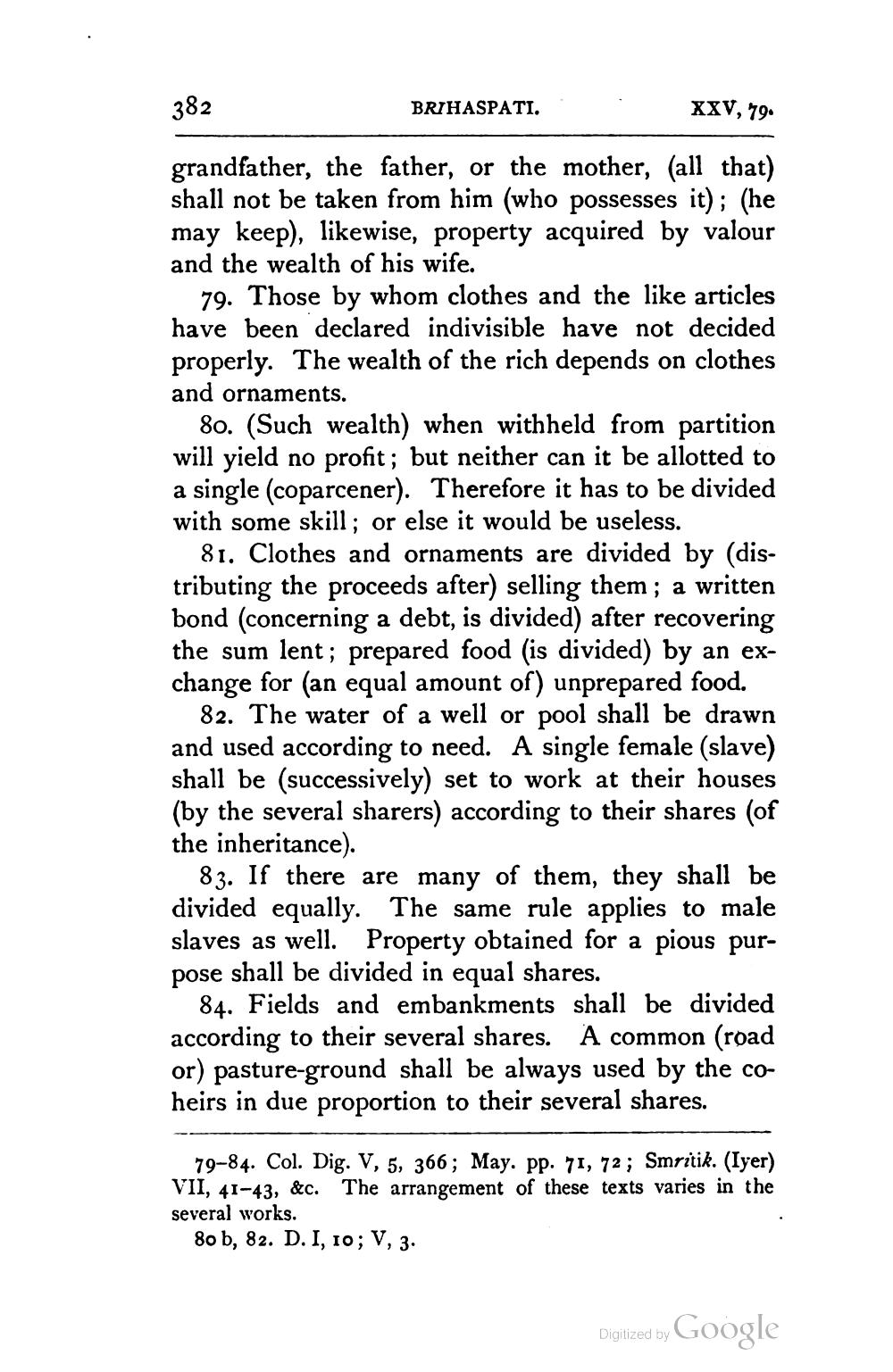________________
382
BRIHASPATI.
XXV, 79.
grandfather, the father, or the mother, (all that) shall not be taken from him (who possesses it); (he may keep), likewise, property acquired by valour and the wealth of his wife.
79. Those by whom clothes and the like articles have been declared indivisible have not decided properly. The wealth of the rich depends on clothes and ornaments.
80. (Such wealth) when withheld from partition will yield no profit; but neither can it be allotted to a single (coparcener). Therefore it has to be divided with some skill; or else it would be useless.
81. Clothes and ornaments are divided by (distributing the proceeds after) selling them; a written bond (concerning a debt, is divided) after recovering the sum lent; prepared food (is divided) by an exchange for an equal amount of) unprepared food.
82. The water of a well or pool shall be drawn and used according to need. A single female (slave) shall be (successively) set to work at their houses (by the several sharers) according to their shares (of the inheritance).
83. If there are many of them, they shall be divided equally. The same rule applies to male slaves as well. Property obtained for a pious purpose shall be divided in equal shares.
84. Fields and embankments shall be divided according to their several shares. A common (road or) pasture-ground shall be always used by the coheirs in due proportion to their several shares.
79–84. Col. Dig. V, 5, 366; May. pp. 71, 72; Smritik. (Iyer) VII, 41-43, &c. The arrangement of these texts varies in the several works.
80 b, 82. D. I, 10; V, 3.
Digitized by Google




